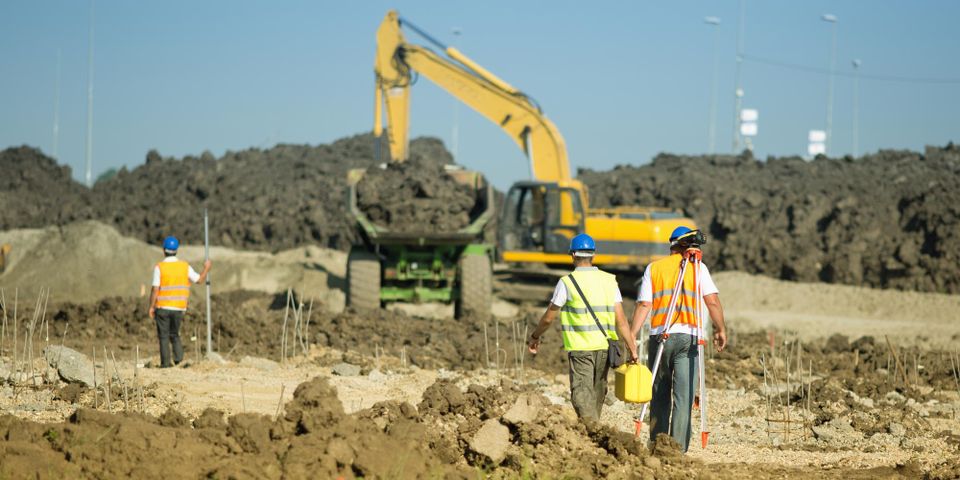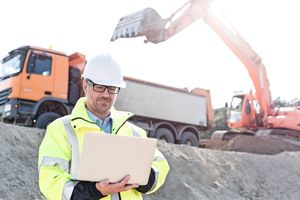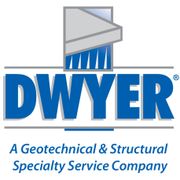4 Details Every General Contractor Should Learn About Ground Improvement

One of the biggest struggles a general contractor has on a project IS to find the right people for the job at the right price. With the first step of the long construction process, ground improvement, the right specialty contractor is more than just planting a couple of micropiles into the ground; their work and budget sets the pace for the rest of the project. To keep this vital step on track, general contractors should know what the ground improvement process entails, so they can assure they have the best person on their team.
What to Ask a Specialty Contractor About Ground Improvement
1. Installation Techniques
Knowing the basics of ground improvement is essential to choosing the best specialty contractor for the job. That industry knowledge can help you understand questions like: Will the job need deep foundations, or can the more affordable aggregate piers work? What are the different techniques for ground improvement? The following are the most likely to come up:
- Removal & Replacement: This age-old method removes and replaces the soil with dense soil suitable for construction.
- Preloading: The ground needing reinforcement is essentially topped with piles of heavy soil to weight down the surface below. While an easy task, it requires the load to stay in place for months and years. The installation of drainage underneath the added soil can expedite the process.
- Vibro-compaction: This technique for granular material uses probe-type vibrators to make the soil denser, which makes the ground more load bearing and less conducive to crumbling in a natural disaster. A vibratory probe digs up to 120 ft underground, during which the column is raised in gradual lifts and its vibrating motion reduces the inter-granular forces between the soil particles, making them densify. Addition clean sand is added to the treatment zone to account for the loss of soil volume.
- Vibro Concrete Columns: For weaker soil compositions in which standard vibro-compaction would not work, improvements are made with vibro concrete columns. The process uses a similar approach to the vibro-compaction technique, except the vibrating column is gradually lowered instead of lifted to densify the soil around it. However, since the soil is weaker, when the column reaches the bottom, it dispenses concrete to fill the empty space created by its digging as the probe returns to the surface. This process results in a column of concrete compactly built to the surface to support the structure above.
- Dynamic Deep Compaction: This process increases the density of the soil below it through the force of dropping a heavy steel and concrete weight on it repeatedly. The weight usually weighs between 5 to 10 tonnes, and it drops free fall from up to 10 meters high. The force of the fall compresses the soil underneath to make the ground more secure. Considering that it doesn’t require the addition of a material to the earth, it is considered the greenest option for ground improvement.
- Soil Mixing: A process that can be used for any kind of soil, soil mixing uses a powerful drill to dig deep in the ground. Once it reaches the bottom, a binder is pumped through the drill and released by the blades as the drill spins back to the surface. The drill’s return mixes the binding agent with the soil to create dense, structurally sound columns. Soil mixing can be done with a wet binder for soils with less than 60% moisture content and dry binders for soils that breach that 60% threshold.
- Deep Foundation: The most-costly reinforcement strategy, deep foundations are required for much larger projects, like skyscrapers, that need monumental weight bearing capacity. Consisting of piers or micropiles made of wood, steel, reinforced concrete, or pre-stressed concrete, this technique either drills or drives these strong materials into the ground to give incomparable structural integrity to what is built above.
2. Spoil Quantities & Removal
An expense that is easy to overlook in the ground improvement process is spoil removal. Any processes that require the addition or removal of soil, like installing micropiles, there will need to be a way to move those spoils. Address this with your specialty contractor before accepting a bid. Some contractors have equipment that makes it possible to have no spoils involved in the process, or at least you will anticipate that additional cost.
3. Additional Expenses
 When reviewing bids, the more you anticipate additional expenses and discuss them with possible candidates, the more on budget your project will be. Pre-drilling is a large expense that can pop up out of nowhere if a specialty contractor suddenly decides that it’s required even if he didn’t initially plan for it. Sometimes aggregate pier installers are not able to keep the hole open on its own during install, and the project needs temporary casings to keep the integrity of the holes while the drill digs all the way down. Discuss these issues with your potential specialty contractor, research if they’re good to their word when they carry out a plan, and confirm that certain expenses are included in the pricing they give you.
When reviewing bids, the more you anticipate additional expenses and discuss them with possible candidates, the more on budget your project will be. Pre-drilling is a large expense that can pop up out of nowhere if a specialty contractor suddenly decides that it’s required even if he didn’t initially plan for it. Sometimes aggregate pier installers are not able to keep the hole open on its own during install, and the project needs temporary casings to keep the integrity of the holes while the drill digs all the way down. Discuss these issues with your potential specialty contractor, research if they’re good to their word when they carry out a plan, and confirm that certain expenses are included in the pricing they give you.
4. Communication & Collaboration
Open communication with all project team members is vital to the timely success of the project. That transparency assures you that your special contractor is doing their job properly, and a good candidate will be open and communicative from the start. When coming to a decision, look for that openness, and find a candidate that has a strong reputation in the field—not just the lowest price.
When looking for a specialty contractor for your soil stabilization needs, the team at The Dwyer Company is as good as it gets. Serving the Lexington and Louisville, KY, communities as well as West Chester, OH, for over 45 years, they are one of the largest and experienced soil stabilization, concrete lifting, foundation repair, and waterproofing companies in the U.S. Call (859) 231-0998 today for their Lexington, KY office. To speak with a representative at their West Chester, OH office, call (513) 777-0998 or (502) 489-5438 for their Louisville, KY branch. You can also visit them online to learn more about their wide range of services, and connect on Facebook for news and updates.
About the Business
Have a question? Ask the experts!
Send your question

